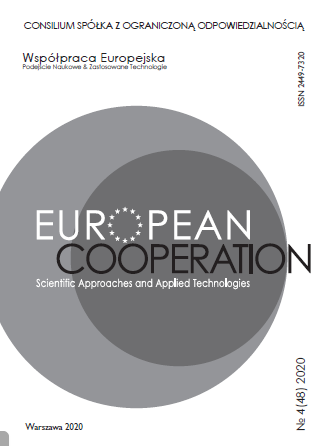MACRO FACTORS INFLUENCING THE FORMATION OF STANDARDIZED MANAGEMENT SYSTEMS OF AN ENTERPRISE
MACRO FACTORS INFLUENCING THE FORMATION OF STANDARDIZED MANAGEMENT SYSTEMS OF AN ENTERPRISE
Author(s): Olena GorlovaSubject(s): National Economy, Business Economy / Management, Energy and Environmental Studies, Comparative politics, Management and complex organizations, Economic development
Published by: Consilium Sp. z o.o.
Keywords: standardized management systems (SMSs); environment; macro factors; ISO 9001; ISO 14001;
Summary/Abstract: This article is devoted to the environmental factors, influencing the implementation of standardized management systems of the enterprise at the country level. The problem is considered from the perspective of systems theory and complexity theory. The research focuses on management systems created following ISO 9001 and ISO 14001 standards and their relationship with the external environment. The study involved 20 European countries with different levels of economic and innovative development. The formation and subsequent development of standardized management systems (SMSs) require considering environmental factors, the context of the enterprise, which is reflected in the provisions of standards for management systems. However, the issues of the influence of environmental factors on the decision of enterprises to implement standardized management systems have been insufficiently studied. The work contains three hypotheses: a) about the connection between environmental factors and the introduction of SMSs by enterprises; b) about the diversity and uniqueness of the configurations of environmental factors affecting the spread of the SMSs in different countries; c) regarding the presence of similar structures of environmental factors influencing the spread of the SMSs in separate countries, which would make it possible to identify the basic types of such configurations. The study resulted in confirmation that a connection between environmental factors on the implementation of the SMSs exists, and groups of aggregated factors along with their components were identified. The features of the configurations of factors influencing the SMSs in different countries were considered. A distinctive type of influence of the external environment on the SMSs board, common for several European countries, was revealed, and called as ‘denying’. Correlation analysis was used to determine the relationship between the factorial and the resulting characteristics, the results of which were subjected to qualitative discussion. Further research in this direction should cover a larger number of countries and factors influencing the formation of the SMSs. This will allow identifying a greater number of basic types of external environment influence on the formation of SMSs for enterprises in different countries and regions.
Journal: Współpraca Europejska
- Issue Year: 4/2020
- Issue No: 48
- Page Range: 68-84
- Page Count: 17
- Language: English

